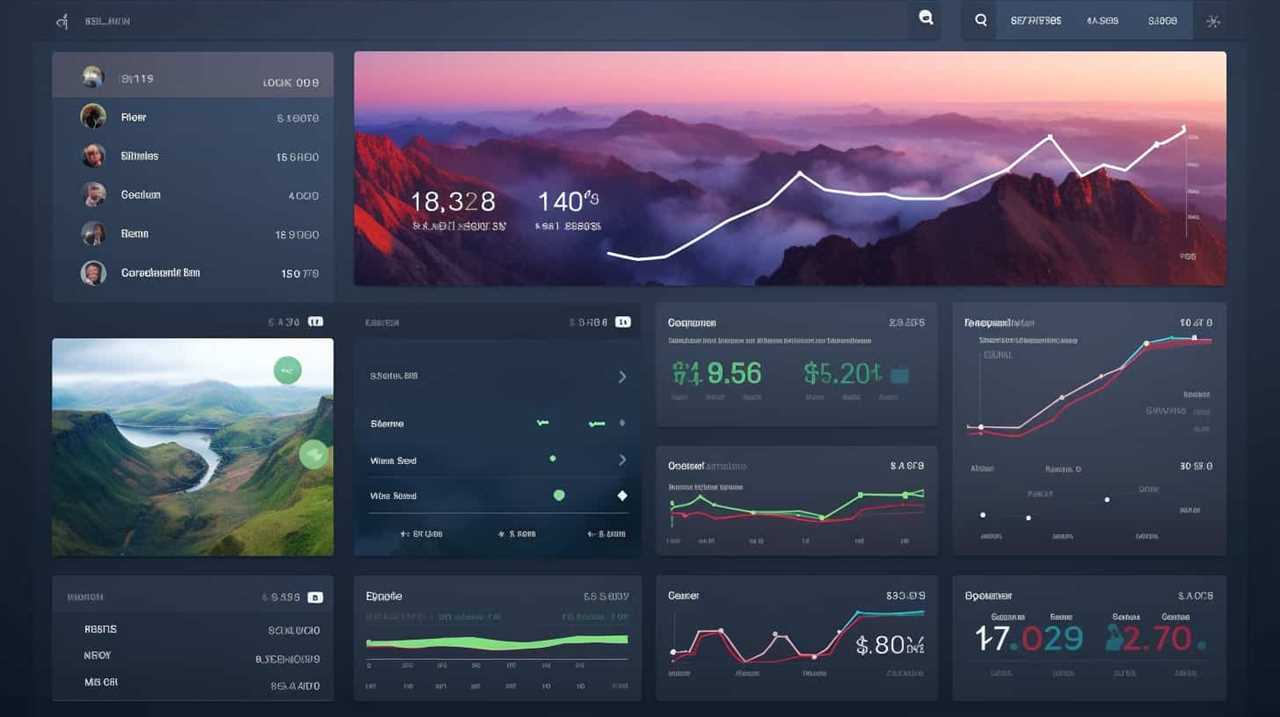Struggling to navigate the complex world of SEO? We’ve faced the same obstacles.
In this article, we’ll delve into the technical and nontechnical aspects of SEO, helping you find the perfect balance.
From the importance of technical SEO to the role of content, we’ll guide you towards SEO mastery.
So, buckle up and get ready to conquer the ever-changing landscape of search engine optimization.

Key Takeaways
- Technical SEO is important for enhancing website performance and visibility on search engine result pages.
- Nontechnical elements of SEO, such as keyword research, link building, and user experience, also play a crucial role in SEO success.
- Finding the right balance between technical and nontechnical elements is essential for effective SEO strategies.
- Content quality and relevance, along with optimized titles and headings, are key factors for SEO success.
The Importance of Technical SEO
The importance of technical SEO lies in its ability to enhance website performance and ensure optimal visibility on search engine result pages.
Technical SEO refers to the optimization of a website’s technical aspects to improve its crawlability, indexability, and overall user experience.
By implementing technical SEO best practices, such as optimizing website speed, fixing broken links, improving site architecture, and implementing proper tags and meta descriptions, website owners can benefit from increased organic traffic, higher search engine rankings, and improved user engagement.
Technical SEO also plays a crucial role in ensuring that search engines can effectively crawl and understand the content on a website, leading to better indexing and visibility.

With its numerous benefits and impact on website performance, technical SEO is a fundamental aspect of any comprehensive SEO strategy.
Nontechnical Elements of SEO
When it comes to SEO, we can’t overlook the importance of nontechnical elements. While technical SEO is crucial for optimizing website structure and performance, nontechnical elements play a significant role in driving organic traffic and improving search engine rankings.
Here are five key nontechnical elements that should be considered in any SEO strategy:
- Keyword research: Understanding the keywords your target audience is using can help you create relevant and optimized content.
- Link building: Building high-quality and relevant backlinks can improve your website’s authority and visibility in search results.
- User experience: Providing a seamless and enjoyable user experience leads to longer dwell time, lower bounce rates, and higher conversions.
- Content quality: Creating valuable and engaging content that satisfies user intent is essential for attracting and retaining organic traffic.
- Social signals: Social media presence and engagement can indirectly influence search engine rankings.
Now that we’ve covered the nontechnical elements, let’s dive into finding the right balance between technical and nontechnical SEO strategies.

Finding the Right Balance: Technical Vs. Nontechnical SEO
Now let’s explore how to find the right balance between technical and nontechnical SEO strategies for optimal website performance and search engine rankings. When it comes to SEO, it’s important to consider both the technical aspects of your website and the nontechnical elements that contribute to its success. A well-rounded SEO strategy takes into account the impact of user experience on SEO rankings and leverages the role of social media in non-technical SEO strategies.
To help visualize this balance, let’s take a look at the following table:
| Technical SEO Strategies | Nontechnical SEO Strategies |
|---|---|
| Website speed optimization | Content creation and optimization |
| Mobile-friendliness | Social media marketing |
| URL structure optimization | Link building and outreach |
By finding the right balance between technical and nontechnical SEO strategies, you can ensure that your website is not only optimized for search engines but also provides a great user experience.
Transitioning into the next section, let’s now explore the role of content in SEO and how it can further enhance your website’s performance and search engine rankings.

The Role of Content in SEO
To effectively optimize a website for search engines, it’s crucial for us to consistently create and optimize content. Content plays a vital role in SEO, as it helps search engines understand what our website is about and determines its relevance to user queries.
Here are five key aspects of content optimization:
- Keyword research: Conducting thorough keyword research allows us to identify the terms and phrases that our target audience is searching for, enabling us to create relevant and valuable content.
- Quality and relevance: Producing high-quality and relevant content that addresses the needs and interests of our audience is essential for SEO success.
- Optimized titles and headings: Crafting keyword-rich titles and headings helps search engines understand the main topics covered in our content and improves visibility in search results.
- Internal and external linking: Including internal and external links in our content helps search engines understand the context and authority of our website, improving its SEO performance.
- Regular updates: Consistently updating and adding fresh content to our website signals to search engines that our website is active and relevant, boosting its SEO rankings.
Mastering Technical Aspects for SEO Success
We can further enhance our SEO success by mastering the technical aspects of website optimization.
Two crucial technical aspects that require attention are website structure and site speed optimization.

Website structure refers to the organization and hierarchy of web pages within a website. A well-structured website makes it easier for search engines to crawl and index content effectively. It involves optimizing URLs, creating a logical navigation structure, and utilizing header tags properly.
Site speed optimization focuses on improving the loading speed of a website. A fast-loading website not only provides a better user experience but also positively impacts search engine rankings. Techniques such as optimizing images, minifying CSS and JavaScript, and utilizing caching mechanisms can significantly improve site speed.
Frequently Asked Questions
What Are the Benefits of Incorporating Technical SEO in a Website?
Incorporating technical SEO into a website offers numerous benefits.
Firstly, it emphasizes the importance of website speed, which plays a crucial role in user experience and search engine rankings.

Secondly, structured data greatly improves SEO rankings by providing search engines with clear information about the content on your website.
How Can Nontechnical Elements of SEO Improve Website Visibility?
Improving website visibility through nontechnical elements of SEO is crucial for enhancing user experience and mobile optimization. By focusing on factors such as content quality, site speed, and intuitive navigation, we can attract and retain more visitors.
Engaging and informative content creates a positive user experience, while optimizing for mobile ensures accessibility across devices. These nontechnical SEO strategies work hand in hand with technical elements to boost website visibility and drive organic traffic.
What Are Some Common Challenges in Finding the Right Balance Between Technical and Nontechnical Seo?
Challenges in finding the right balance between technical and non-technical SEO can be quite common. As a team, we understand the importance of both aspects when it comes to improving website visibility.

Technical SEO requires expertise in areas like website structure, page speed, and mobile optimization. On the other hand, non-technical SEO focuses on content creation, user experience, and social media engagement.
Our strategy involves combining these elements effectively to optimize website performance and enhance visibility in search engine rankings.
How Does Content Play a Crucial Role in Improving SEO Rankings?
Improving SEO rankings is crucial for online success.
Content plays a vital role in achieving higher rankings. Keyword research is essential as it helps identify the terms people are searching for. By incorporating these keywords strategically into our content, we can increase visibility and attract more organic traffic.

Additionally, backlinks from reputable websites signal to search engines that our content is trustworthy and valuable. By focusing on quality content, keyword research, and building strong backlinks, we can improve our SEO rankings and drive more traffic to our website.
What Are Some Advanced Technical Aspects That Can Significantly Impact SEO Success?
When it comes to SEO success, there are some advanced technical aspects that can have a significant impact.
User engagement is crucial, as it signals to search engines that your website is valuable and relevant.
Mobile optimization is also key, as more and more people are accessing the internet on their mobile devices.

These technical aspects require expertise and attention to detail, but mastering them can greatly improve your SEO rankings.
Conclusion
In conclusion, achieving SEO success requires finding the right balance between technical and nontechnical elements.
While technical SEO is important for optimizing website performance, nontechnical aspects like content and user experience shouldn’t be overlooked.
By mastering the technical aspects and creating high-quality, keyword-focused content, businesses can enhance their online visibility and attract more organic traffic.

Remember, a harmonious blend of both technical and nontechnical SEO is the key to achieving optimal results.









